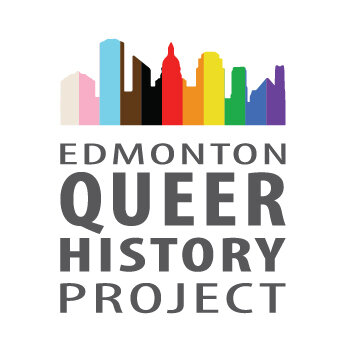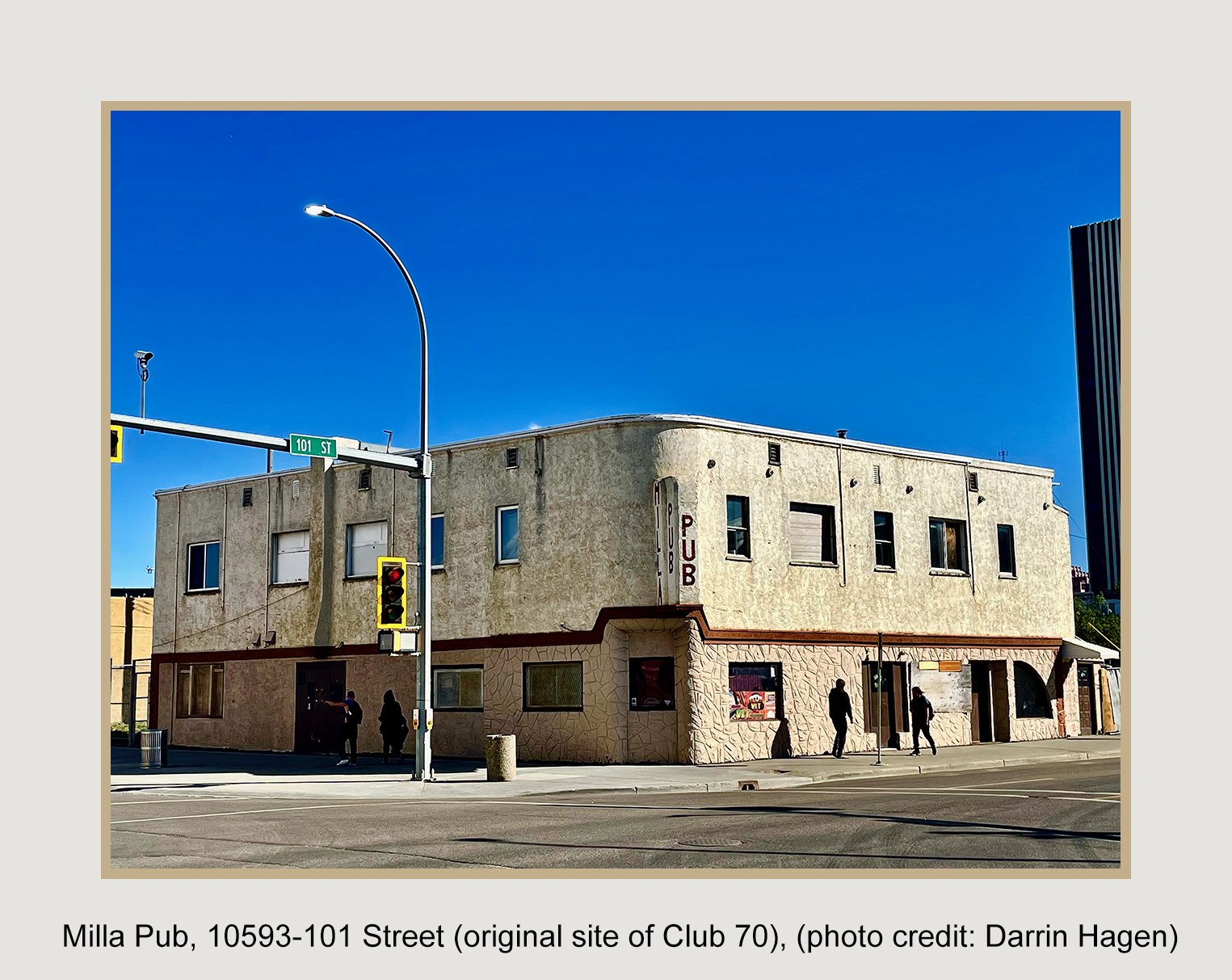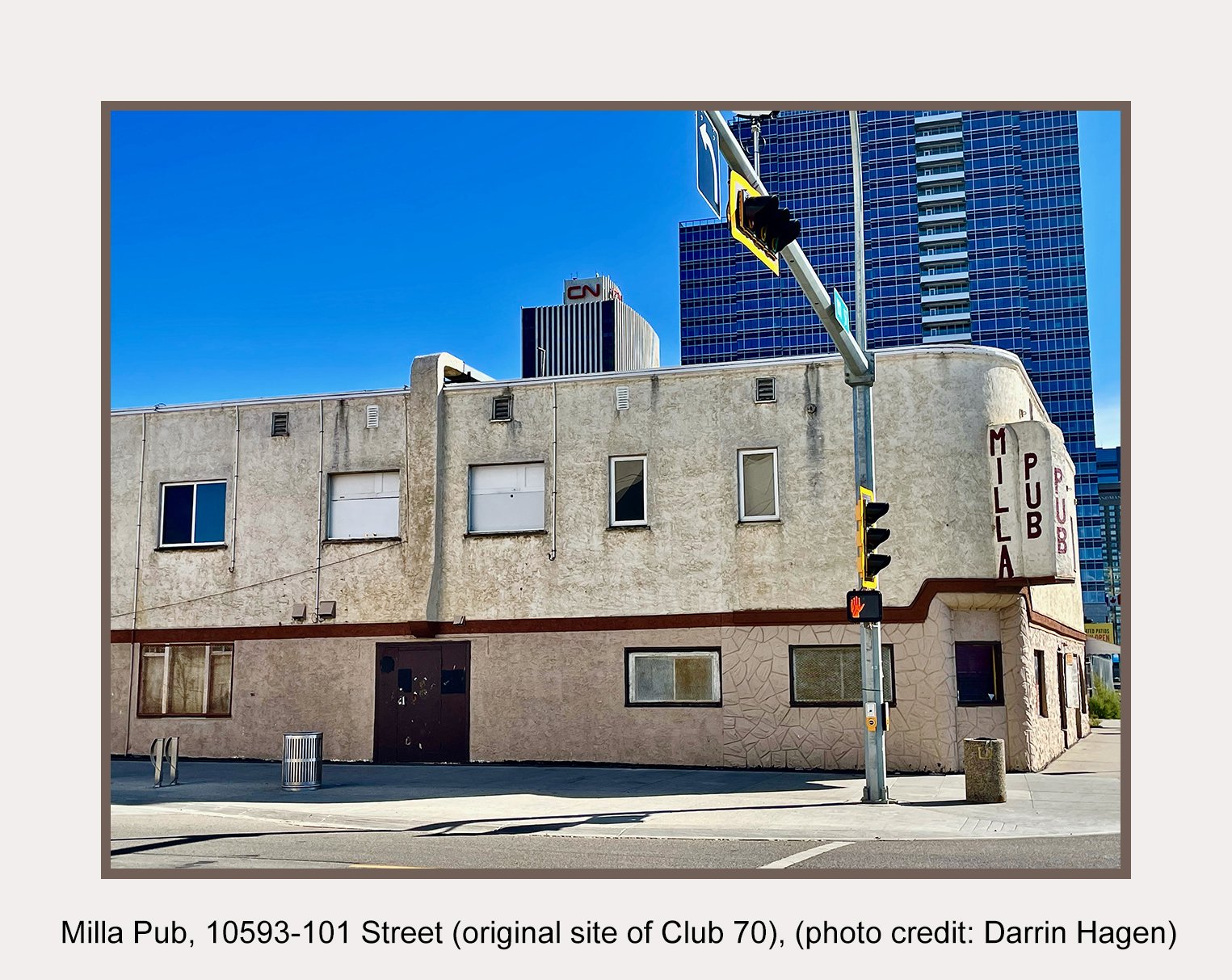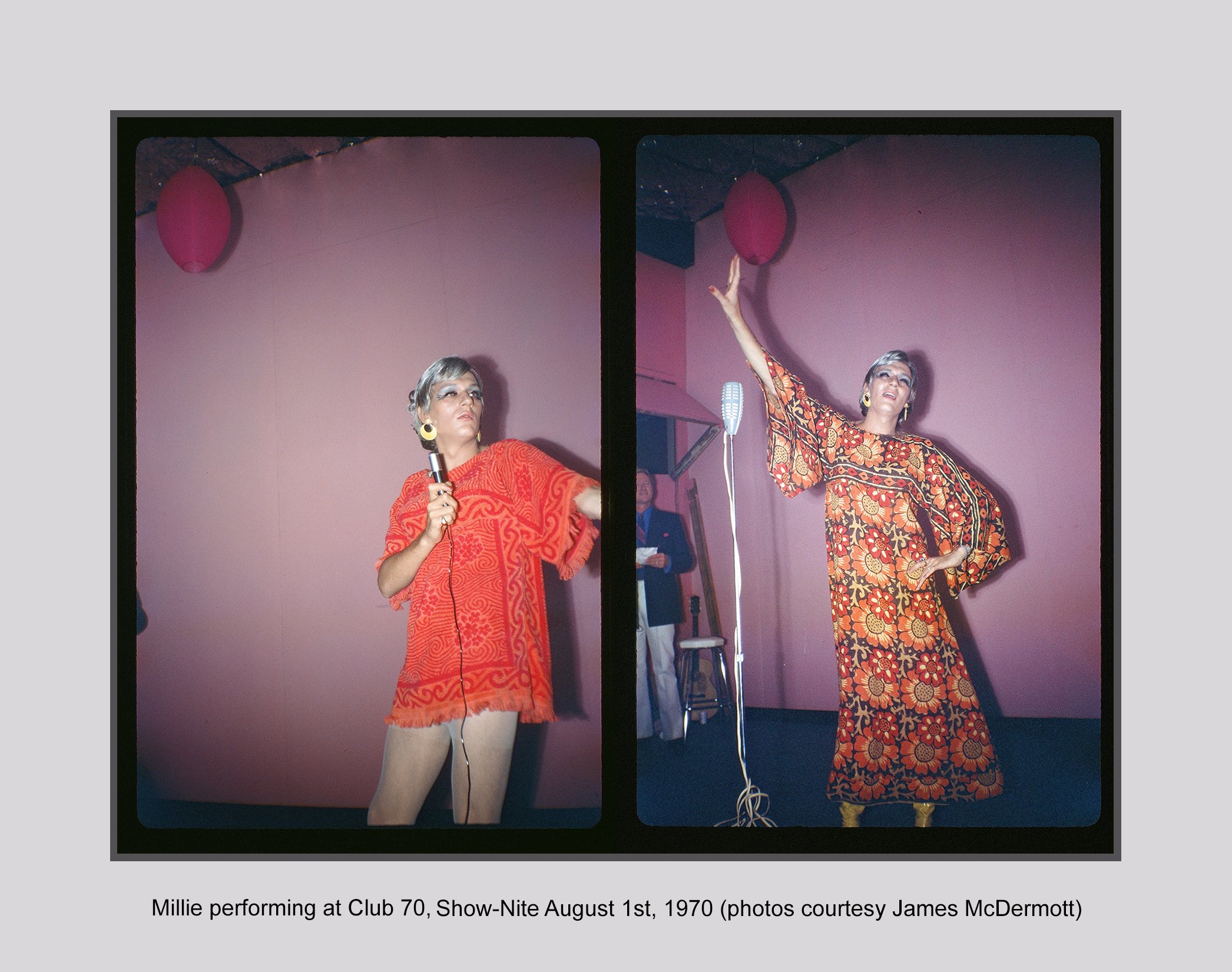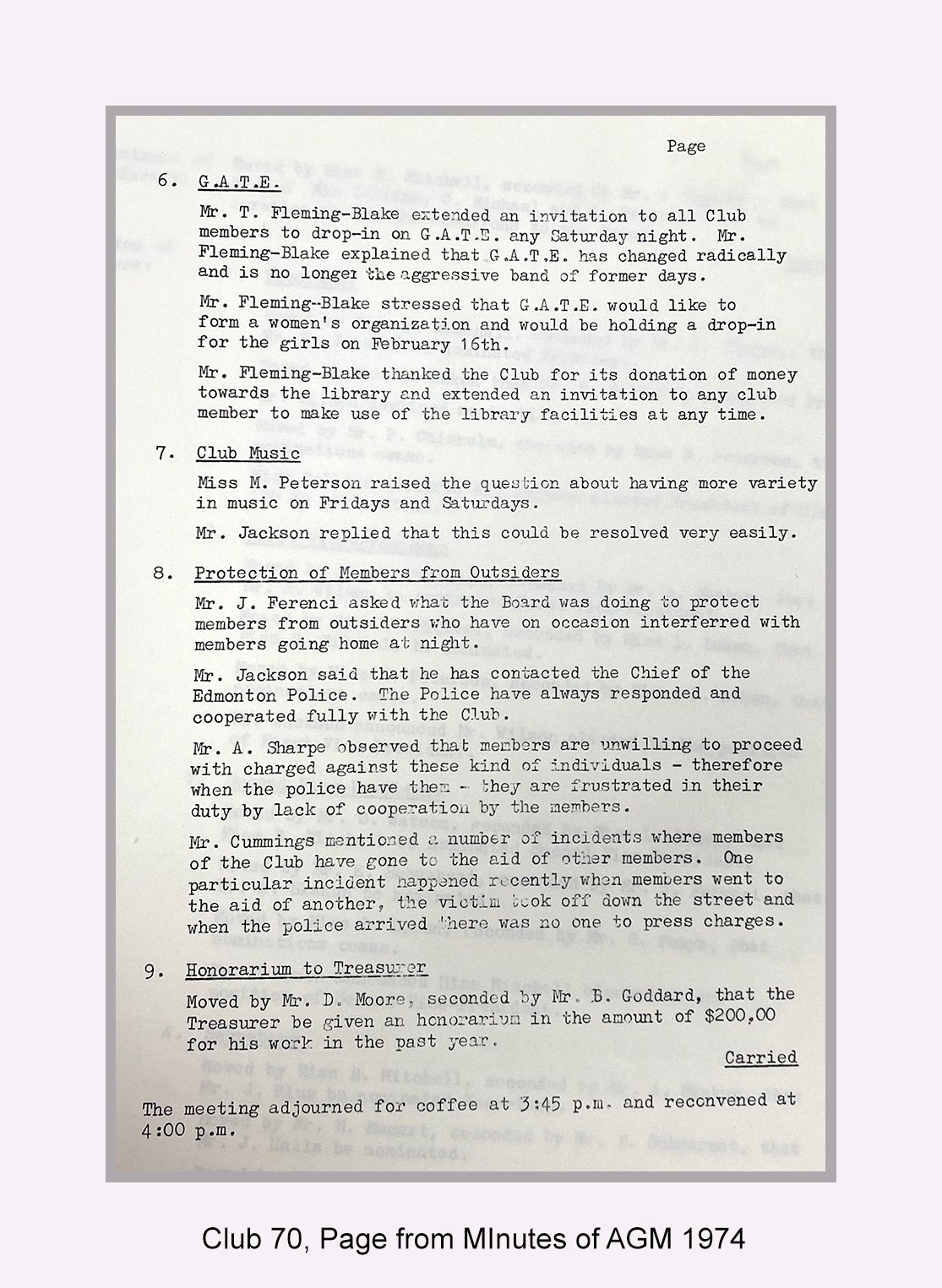CLICK HERE to continue reading full text on this page or download below
Before Club 70, members of Edmonton’s LGBTQ2 community often gathered together clandestinely in houses, apartments, parks, tea rooms (public bathrooms), and other fugitive spaces to find friends, relationships, and spaces of safety. Some places like the King Edward Hotel, as well as the Corona, Mayfair, Hotel Macdonald, and Royal George hotels, tolerated same-sex patrons so long as they were quiet and unsuspecting.

